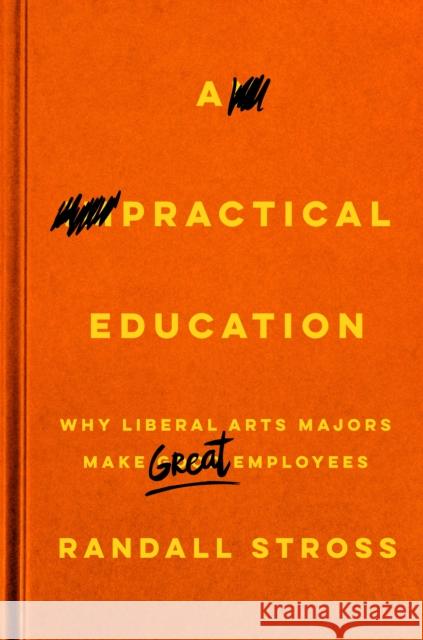A Practical Education: Why Liberal Arts Majors Make Great Employees » książka
A Practical Education: Why Liberal Arts Majors Make Great Employees
ISBN-13: 9780804797481 / Angielski / Twarda / 2017 / 304 str.
A Practical Education: Why Liberal Arts Majors Make Great Employees
ISBN-13: 9780804797481 / Angielski / Twarda / 2017 / 304 str.
(netto: 99,13 VAT: 5%)
Najniższa cena z 30 dni: 102,11 zł
ok. 22 dni roboczych.
Darmowa dostawa!
The liberal arts major is often lampooned: lacking in "skills," unqualified for a professional career, underemployed. But studying for the joy of learning turns out to be surprisingly practical. Unlike career-focused education, liberal education prepares graduates for anything and everything--and nervous "fuzzy major" students, their even more nervous parents, college career center professionals, and prospective employers would do well to embrace liberal arts majors. Just look to Silicon Valley, of all places, to see that liberal arts majors can succeed not in spite of, but because of, their education. A Practical Education investigates the real-world experiences of graduates with humanities majors, the majors that would seem the least employable in Silicon Valley's engineering-centric workplaces. Drawing on the experiences of Stanford University graduates and using the students' own accounts of their education, job searches, and first work experiences, Randall Stross provides heartening demonstrations of how multi-capable liberal arts graduates are. When given a first opportunity, these majors thrive in work roles that no one would have predicted. Stross also weaves the students' stories with the history of Stanford, the rise of professional schools, the longstanding contention between engineering and the liberal arts, the birth of occupational testing, and the popularity of computer science education to trace the evolution in thinking about how to prepare students for professional futures. His unique blend of present and past produces a provocative exploration of how best to utilize the undergraduate years. At a time when institutions of higher learning are increasingly called on to justify the tangible merits of the liberal arts, A Practical Education reminds readers that the most useful training for an unknowable future is the universal, time-tested preparation of a liberal education.











